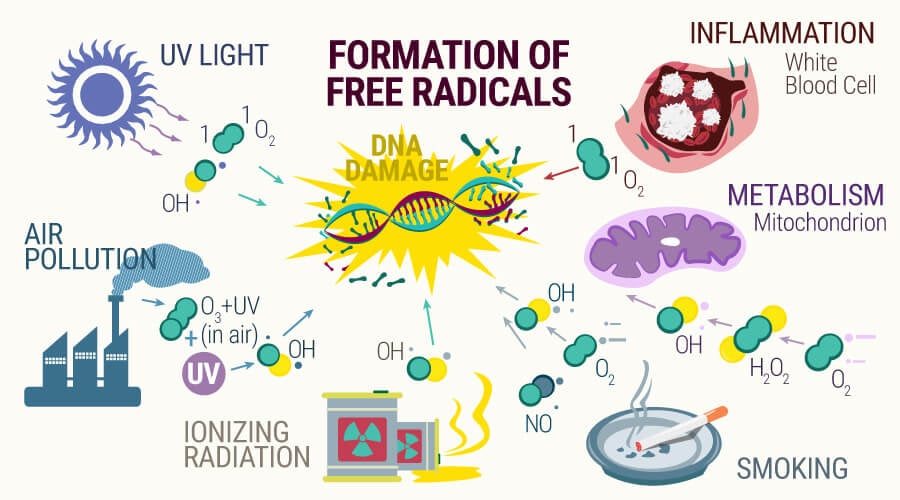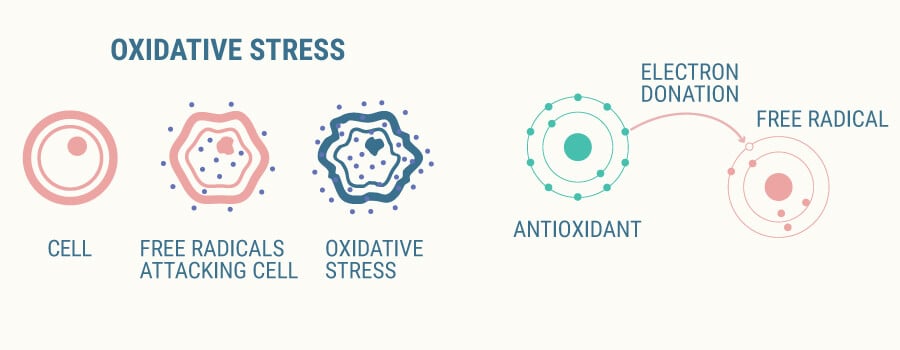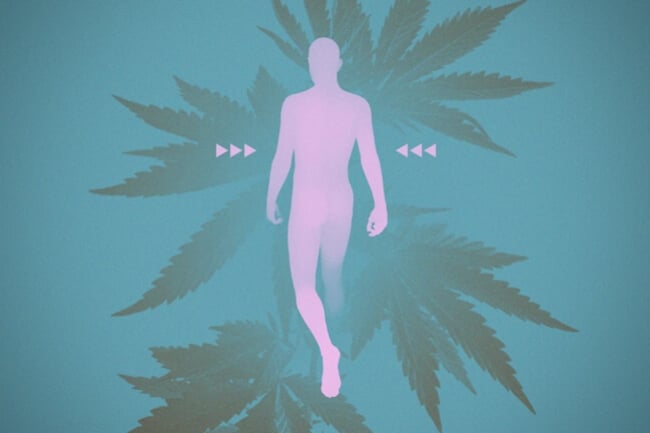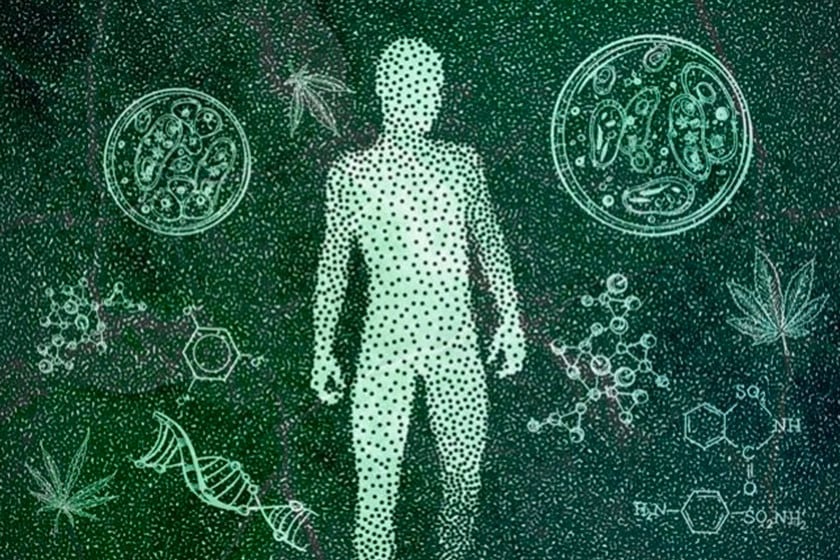.

Does CBD Work as an Antioxidant?
Could CBD, THC, and other cannabinoids be our future allies in the lifetime war between antioxidants and free radicals? Early research suggests that cannabinoids have antioxidant and neuroprotective properties. Now it's time for clinical trials.
Every living creature hosts a lifetime war between the “good” antioxidants and the “bad” free radicals. Over the last 20 years, this war was often under the media spotlight. Consequently, the general public became concerned and tried to increase our collective fruit and veggie intake. Free radicals are bad for our health—that’s what we all understood—and unfortunately, they are going to win the war, sooner or later. In this article, we take a look at the battle between free radicals and antioxidants that constantly dwell inside our body, examining if, according to research, CBD and other cannabinoids might be our allies.
FREE RADICALS ARE PART OF OUR METABOLISM
Humans need to convert food into energy to survive. When our metabolic processes create energy, they also generate waste products. Some of them are molecules of some biochemical compound containing an unpaired electron, namely, free radicals. Free radicals in our body are also generated from external factors, such as stress and toxins, be they inhaled, ingested, injected, or absorbed by the skin.
The unpaired electron in the free radical corrupted molecule attracts another electron from a healthy molecule, triggering a chain reaction that leaves us with a bunch of deteriorated molecules. Since these molecules are part of our cellular tissue, in all its differentiations, the result of this process is having one or more organs or body parts slowly “ageing” or even quickly getting sick.
Too many free radicals in the body, for any reason, can trigger minor diseases and severe conditions as well, such as cancer, Alzheimer’s or Parkinson’s, atherosclerosis, heart disease, and stroke. On the other hand, we all know through advertising that our natural and “harmless” skin ageing is mainly caused by free radicals. Brain cells use a significant amount of energy to do their job. That creates free radicals and oxidative damage at a neuronal level, leading to age-related decline.

THE NEED FOR ANTIOXIDANTS
An antioxidant is a natural substance that inhibits oxidation, the chemical reaction that produces the free radicals damaging the cells. We are able to produce our own antioxidants up to a certain level, yet not enough to neutralise all of the harmful effects of external factors like pollution, junk food, smoke, and many more. That’s why it’s important to harness a lot of antioxidants from food, even if it is hard to tell how much we actually need during every stage of life. Antioxidants are an important part of any diet for maintaining good health and proper function since it’s proven that the damage to “oxidised” cells leads to illness and chronic disease.
Antioxidants give out electrons to lonely electrons in free radicals, thus creating a pair that stabilises the molecule and prevents the chain reaction effect made by stolen electrons from other molecules that degrade cellular functionality. Antioxidants are substances like ascorbic acid (vitamin C), vitamin E, glutathione, lipoic acid, uric acid, carotenes, and coenzyme Q10.
Our diet should always be based on antioxidant-rich fruits and vegetables that help reduce inflammation and cellular damage. Whole plants and fruits are much more effective than extracts or synthesised molecules, in the same way whole-plant derivatives from cannabis seem to work better than isolated cannabinoids.
Does CBD Show Antioxidant Potential?
How will researchers determine if CBD acts as an antioxidant? Well, they need to test the molecule against models of oxidative stress. Several studies from the past set out to do just this, and a review[1] published in the journal Free Radical Biology and Medicine analyzed the data from many of them. The paper combs through the action of cannabidiol in cell and animal models of inflammatory diseases, including obesity and metabolic syndrome, neurodegenerative diseases, depression, and hypertension.
Antioxidants are drawing particular interest as neuroprotectants. Floods of the excitatory neurotransmitter glutamate can cause glutamate toxicity and oxidative stress—events tied to conditions[2] such as brain cancers, amyotrophic lateral sclerosis, Alzheimer’s disease, and Huntington’s disease. Researchers are now looking into the impact of CBD in cell and animal models of glutamate toxicity.

IS CBD THE NEXT ANTIOXIDANT AND NEUROPROTECTIVE?
It’s too early to say, as research remains in the preclinical stages. Despite what lab studies suggest, there is no clinical evidence to suggest that CBD or other cannabinoids are effective antioxidants for severe conditions such as Alzheimer’s, Parkinson’s, and dementia.
Based on the studies outlined above, cannabinoids may have the potential to fight free radicals, and it appears that most of them produce some sort of antioxidant or protective effect. While we wait for research to deliver conclusive results, the diversity of cannabinoids means they can be found in oils, capsules, edibles, and topicals, broadening their potential. We can only hope the encouraging results uncovered so far are supported by comprehensive human trials in the future.
- Cannabidiol as an Emergent Therapeutic Strategy for Lessening the Impact of Inflammation on Oxidative Stress https://www.ncbi.nlm.nih.gov
- Chronic Glutamate Toxicity in Neurodegenerative Diseases—What is the Evidence? https://www.frontiersin.org






































